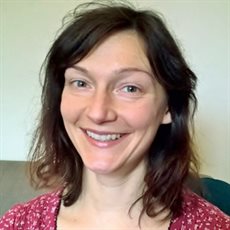The Hay Festival will take place from Thursday 23 May to Sunday 2 June 2024.
The Festival brings together life-changing writers, fabulous stars of stage and screen, pioneers of science and technology, and future world leaders, for a party of ideas and stories.
The University of Birmingham’s College of Arts and Law are a Hay Festival sponsor. Our three speakers at this years Festival are details below, and tickets are available to book now!
Ownership, Theft, and Truth-Artifice Boundary Work in Deepfake Pop
Sunday May 26, 8.30pm
This presentation will discuss the moral, ontological, and aesthetic issues that are stirred by the proliferation of so-called deepfakes in twenty-first century popular music. Typically viewed as a form of audio clickbait, cases such as Ghostwriter’s fusion of Drake and The Weeknd prompt us to ask what happens when music produced by deepfakes is aesthetically and culturally valuable. How will the legal and moral issues of ‘voice theft’ be resolved if the results are in the public interest? The empirical part of the presentation compares the Beatles’ official AI reconstruction of Now and Then with efforts by amateur producers to use AI to ‘complete’ unfinished bootlegs by Beatles members. YouTube comments attest to the many hundreds of listeners who have heard these reconstructions as superior to the Beatles-backed song that currently sits at the top of the UK charts. Yet to date they have received no serious discussion in the music press or academia. I discuss the moral norms that are developing in the bootleg community concerning the use of popstar voice models, as well as the developing discourse of ‘real’ and ‘fake’ in contexts where little of the final product has not been subject to AI-powered correction, enhancement, and simulation. I end by evaluating some experimental attempts to resolve issues of ownership and theft in a world of deepfakes, including Holly Herndon’s DAO-based voice model, Holly+, and Grimes’s elf.tech platform.
Tickets for this talk can be purchased via the Hay Festival site here.
Memory Wars: The Lasting Legacy of Britain’s Civil Wars (and what it can teach us about war, peace, memory, and the power of the past)

Wednesday May 29, 10am
The Civil Wars that engulfed Britain in the mid-seventeenth century were the most destructive in the island’s history. Goods and livestock were plundered; cities besieged; and a larger proportion of the population were killed than in both World Wars combined. But they also left lasting scars on the British cultural and political imagination. From the Restoration and the American Revolution to the Brexit prorogation debates and beyond, the memory of this turbulent decade has continued to haunt the politics of the present. In this talk, Dr Imogen Peck explores the multifaceted – and often conflicting and contradictory – ways that Britain’s Civil Wars have been remembered, forgotten, and (mis)represented, from the immediate aftermath of the conflict through to the present day. She also asks what, in a time of global instability and war, we might learn from the successes and failures of early modern states, exploring some of the surprising parallels between early modern and modern approaches to cultural memory and issues of national reconciliation.
Tickets for this talk can be purchased via the Hay Festival site here.
Creative Responses to Terror: three objects, six people, and their stories


Saturday June 1, 7pm
In this presentation, we tell the stories of six inspiring people through three objects. The talk builds on years of fieldwork and creative collaborations with survivors of terror attacks. The first object is a narwhal tusk used by MoJ employee Darryn Frost and prisoner Steven Gallant on 29 November 2019 to tackle an armed attacker on London Bridge. Frost and Gallant have since co-founded the social enterprise ‘Own Merit’, which supports people to rebuild their lives after prison. The second object is the camera of David Fritz Goeppinger who survived the hostage-taking in the Bataclan attack in 2015. The camera was used by his friend Arthur Dénouveaux, a survivor and president of the victim association, to capture the process of (re)claiming agency they both underwent during the trial against the accused. The third object is a knitted teddy bear made by Figen Murray. After losing her son Martyn Hatt in the Manchester Arena bombing, Figen began to knit ‘peace bears’ and led a successful campaign for better security measures at public events (Martyn’s Law). The three stories powerfully illustrate how creative practice can be used to remember violent loss, (re)claim agency, and to work towards less violent futures.
Tickets for this talk can be purchased via the Hay Festival site here.